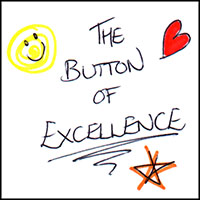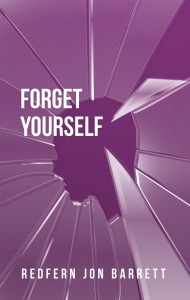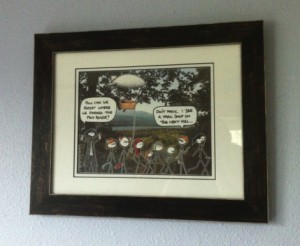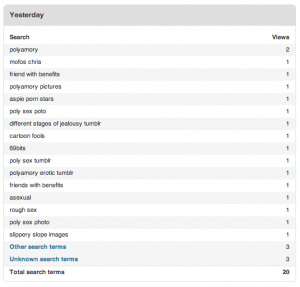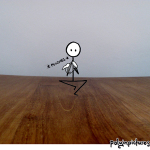Some time ago, in the middle of a ridiculous haze caused by autistic/domestic anxiety and depression, Red found me on Facebook through the Poly in Pictures page and sent me a message asking if I’d like to read his book. He spoke of queer and polyamorous themes, and I knew he meant it. I’m not that widely read so this is probably not a reliable generalisation, but most books I’ve read that make claims like this are… how can I explain this? I find that they exaggerate. There’s books that shout HEY THERE’S QUEER STUFF HERE, AND FREE LOVE but it feels like a pretence for the sake of selling copies. It feels like the author doesn’t really know this aspect of their story. This might just be me.
For a little while Red and I lived in the same city. I somehow managed, despite my social clumsiness, to have a lot of fun with his chosen family. From my little outsidey position I thought that he lived his life openly and I liked that a lot. So when Red says that his books are queer and poly, I know he comes from a place of living the things he’s writing about.
So I said yes, I would love to read your book. And it only took me 6 months to reply!
It’s called Forget Yourself (ebook), and it’s told from the perspective of one of many people who appear in a barren wasteland with no escape and no memory at all of self or world. It is assumed that they are stranded here as a punishment for forgotten crimes. As and when people remember arbitrary social rules they are written down in a book by people who don’t know who they are and who are desperately scrabbling to define themselves by what others think is normal. Queer has just sort of happened unrestrained as defined sexuality is still forgotten, but someone’s gone and remembered monogamy. We are given this funny landscape in which heteronormativity is completely nonexistent, but non-monogamy is unthinkable.
Blondee, the narrator, loves more than one person. Her defiance of the book of rules tips everything on its head, and events unfold in a horrifying and captivating sort of a way.
Since I’m not very good at describing movies and books and things in a helpful way (according to everyone who’s said to me “so what’s [movie/book] like?”), I will just give you some bullet points.
- It reminded me a little bit of Margaret Atwood. That might just be me, though.
- I kept thinking it was about to end, and then was delighted when it didn’t. (Ebooks are a bit interesting like that. This would be impossible with a paperback, because you’re holding the pages.)
- I enjoyed the way the characters became themselves to me by their experiences and relationships, rather than having them already established. I found out who they were as they did.
- I quite like the way the author handles death.
- I was immediately drawn in to the story, and in love with some of the characters. (Frederick, and Burberry.)
- My autistic brain likes the way small sensory details are caught in the mind of the narrator.
- It unwrote bits of my brain, letting me put myself into the gaps it left.
It is so incredibly satisfying to read something genuine. These people! They have no memory of who they are, and so it seems entirely acceptable to be gender-non-conforming and sexually fluid. The only reason monogamy is even a Thing is because someone caught the edge of a broken memory of the outside world and wrote it down, and in this surreal mirror-but-not of our own social environment it’s broken apart and put back together in an accurately twisted sort of a way.
I think I love most of all the main character’s experience as she finds herself loving more than one person, and she lets her behaviour and relationships progress unrestrained. She talks about the way her co-prisoners react with hostility and assumption, which I think we can all relate to. But there is a point where she accepts that she need not be defined by others, and each relationship need not be defined by other relationships, and I love that about her. But that is not the end of the story.
In summary: read it.
